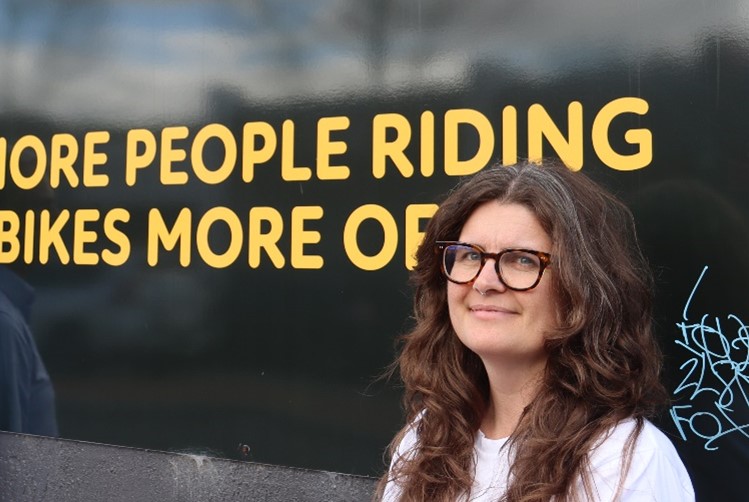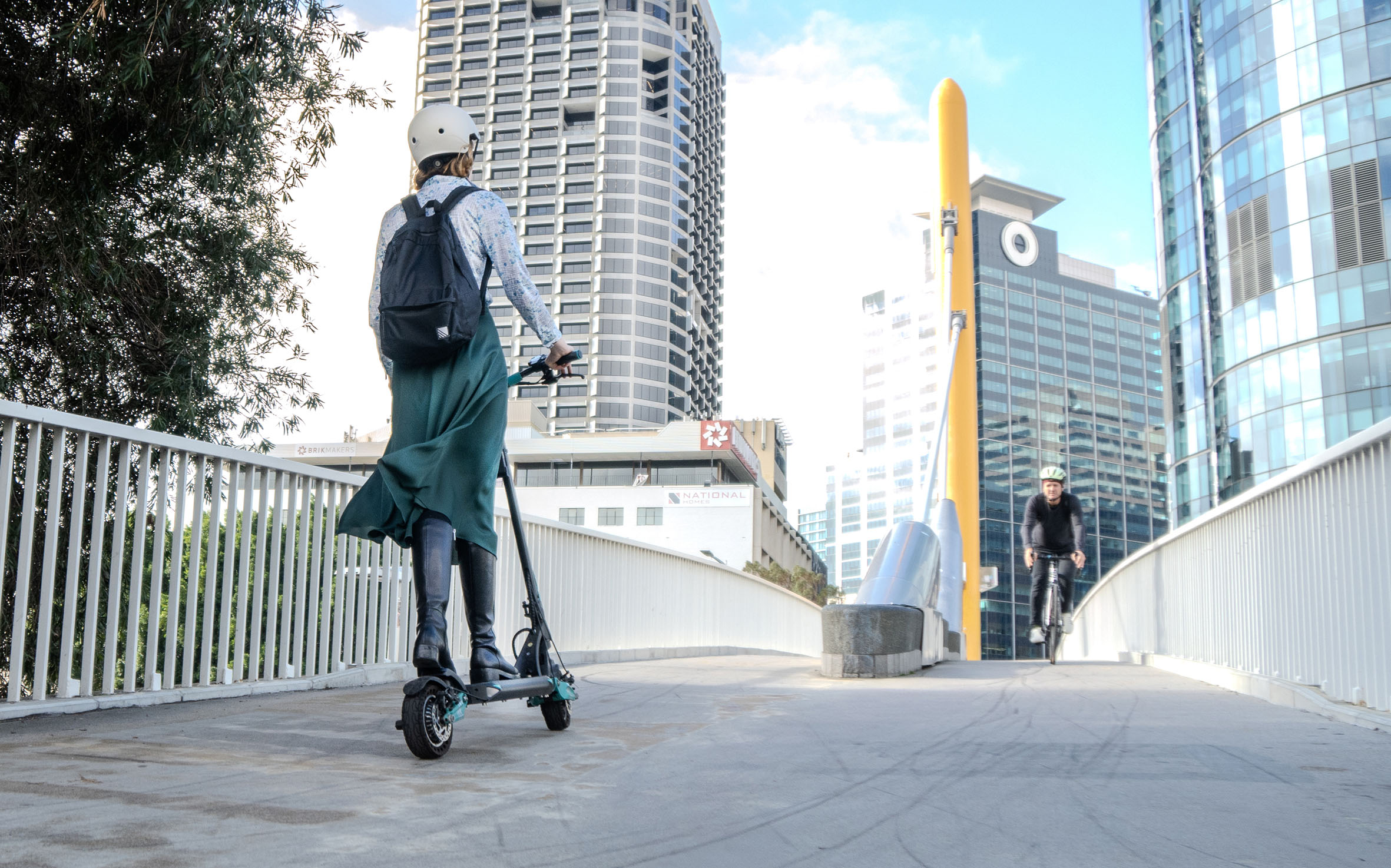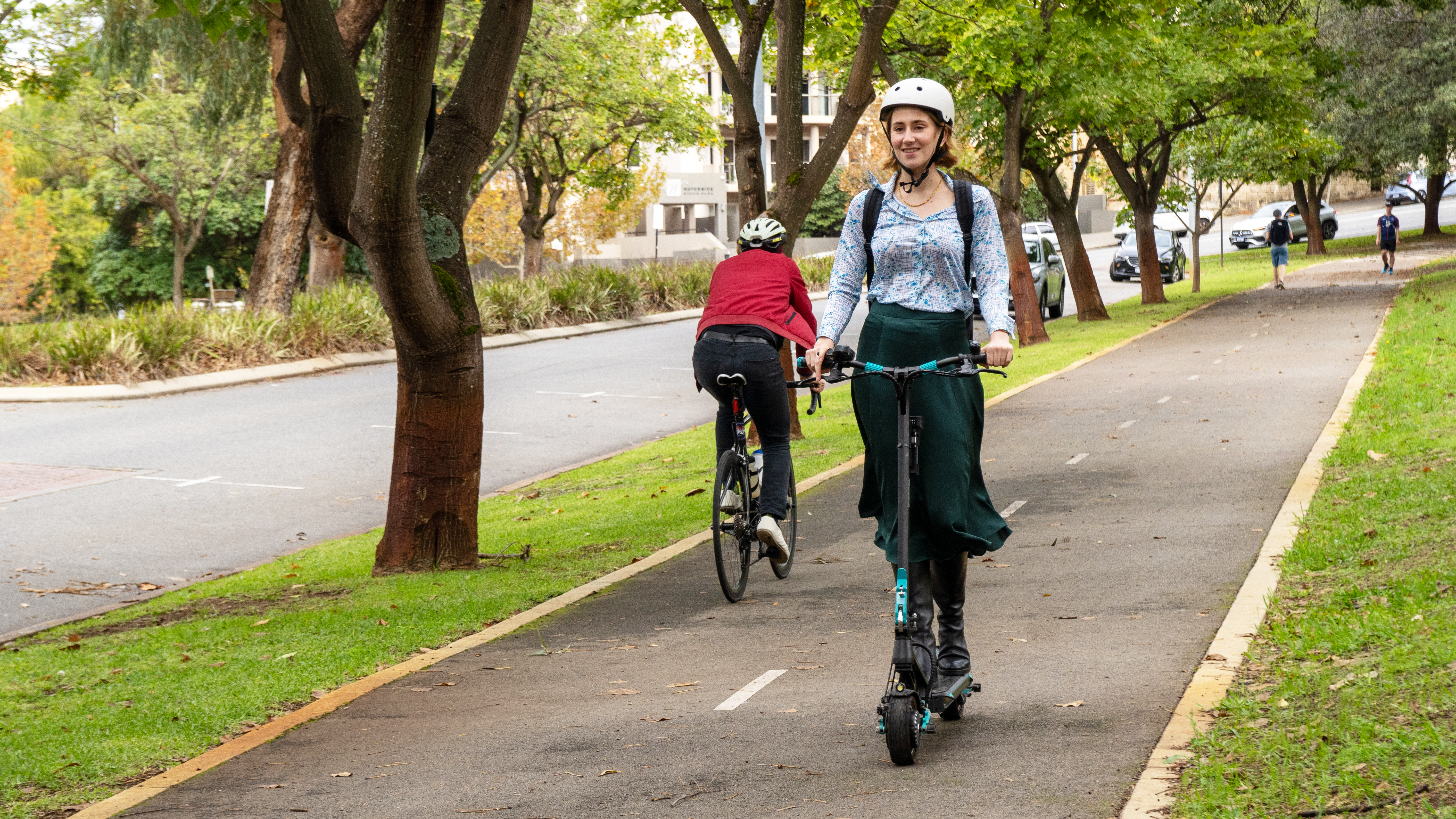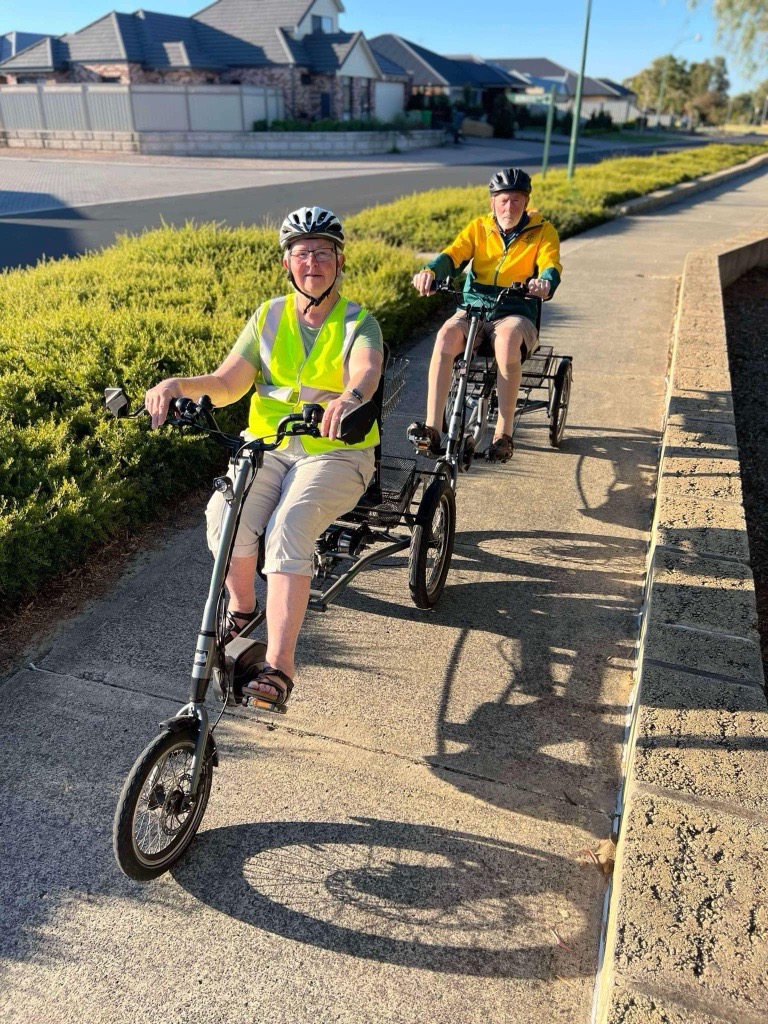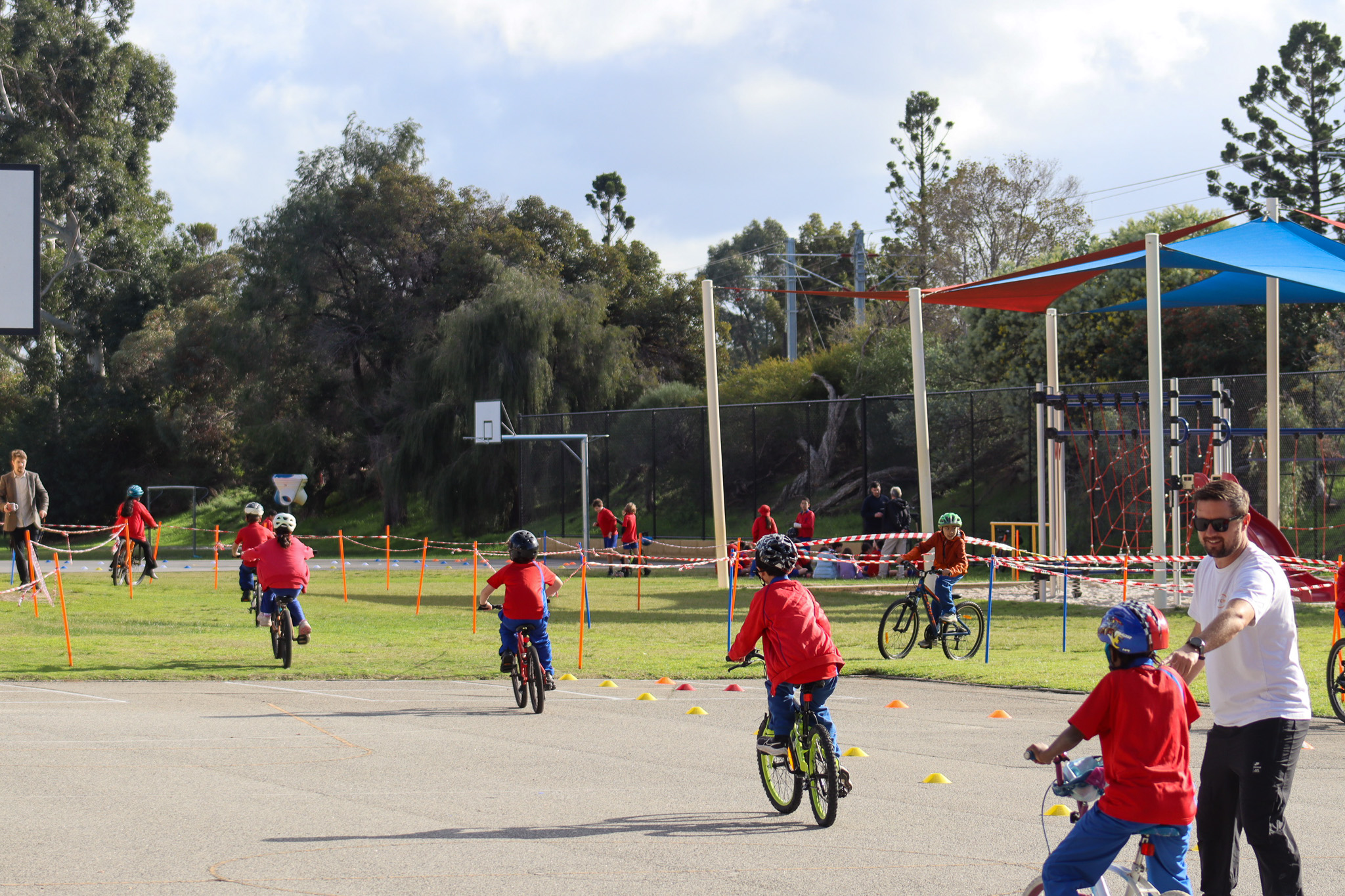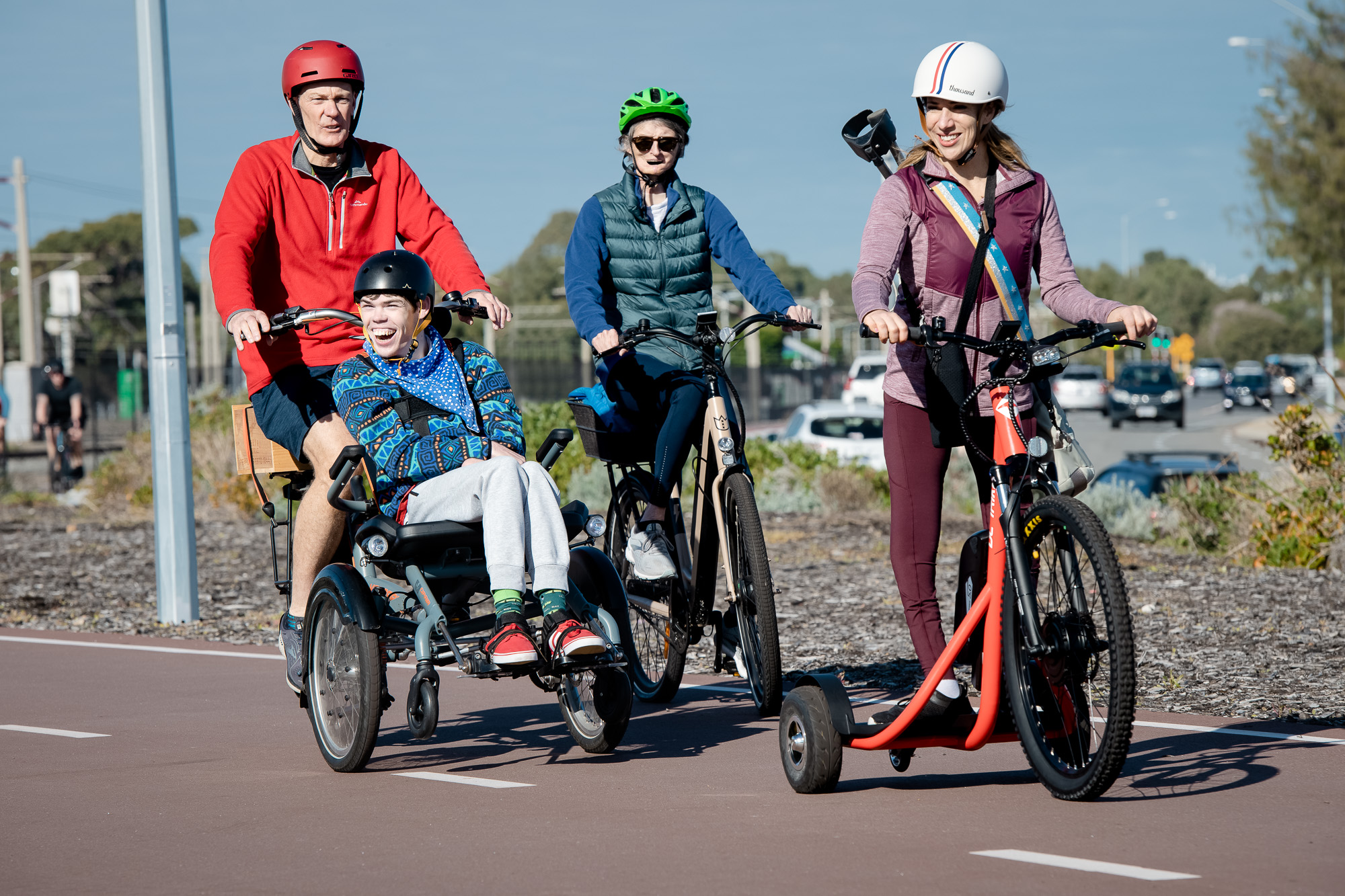
Cycling and e-scooters are responsible for 6850 jobs in WA and contribute about $2 billion directly and indirectly – $18bn nationally – to the economy, a new report says.
Federal MP for Swan, Zaneta Mascarenhas, said the report highlighted cycling’s importance to the WA economy, and called for cycling infrastructure investments.
“I’d love to see local, state and federal governments work together to identify new and innovative ways we can improve our active transport infrastructure,” Ms Mascarenhas said.
More spending on active transport infrastructure more often
WestCycle Active Transport Manager, Dr Georgia Scott, welcomed the report but called for better and safer active transport infrastructure. “This report confirms the importance of cycling and active transport to Western Australia’s economic, public health and emissions reduction goals,” Dr Scott said.
“The findings are encouraging in that many people are riding bikes regularly, and women’s participation is higher than we anticipated at around 40%.
“However, the report also affirms what the sector has known for a long time: that most people who want to ride, or ride more, need safer infrastructure to do so.”
Dr Scott added: “The State Government must keep growing the spend on active transport to meet community needs and expectations, and make cycling a truly viable transport option for everyone.”
Ms Mascarenhas, who Chairs the Parliamentary Friends of Cycling Group, noted, “Cycling tourism generated $128.7 million for the WA economy, with a significant portion of this value going to regional WA.”
“Not only is cycling a boom for the city but is now turning into a valuable asset for regional towns and businesses, many of whom are continuing to rebuild following the impact of the Covid-19.”
‘Triple bottom line’ of cycling benefits
The WeRide Australia report, to be officially launched at the Cycling Luminaries Awards at Parliament House in Canberra tonight, documented cycling benefits to Australia’s road networks, personal wellbeing and the environment.
From a social welfare point of view, it found that cycling contributed almost $1bn a year to the Australian economy in reduced healthcare costs, workplace productivity benefits and longer lifespans.
Cycling and e-scooter use contributed around 60,000 jobs and $18.6 billion to the economy.
They replaced almost 4bn kilometres of vehicle travel that equated to a reduction of over 500,000 tonnes in greenhouse gas emissions.
Why we ride (and don’t ride more often)
The report found 6.5m Australian adults cycled in 2022, while 3.6m adults used an e-scooter. Physical fitness, mental wellbeing, fun and enjoyment and being environmentally friendly were the primary motivators for people riding.
While bad weather was the number one reason that kept people off bikes, safety was by far the greatest collective concern including:
- Not feeling safe around motor traffic
- Not enough safe and connected cycling infrastructure
- High speed limits that make riding unsafe
- Too many heavy vehicles on roads
- Not enough separated bike paths or trails near me
Of the 33% of Australian adults who cycled in 2022 (higher in WA at 37%), 59% rode at least once a week, with dedicated bike paths the favoured places to ride. Another 17% cycled once a month.
The cycling economy
In 2022, less Australians spent money on cycling-related goods or services, down to 24% from 29% in 2020, when the previous report was published. The amount spent by individuals per year rose however, from $790 to $895.
The total number of bikes purchased was down from 1.7m in 2020 to 1.56m in 2022, although the average bike spend also jumped from $923 to $1148.
Total 2022 spending on bikes and cycling-related goods and services came in at $6.7bn.
E-bikes recorded the greatest sales growth, from 54,000 sold in 2020 to 193,000 last year, and now account for 12% of all Australian bike sales.
Despite well-documented low participation rates across the country among children, kid’s bikes were the most popular type of bike purchased in 2022.
The rise of e-scooters
The national e-scooter sector was valued at $728m, with 61,500 scooters sold over the year at an average of $1050.
The ACT (31%) and WA (22%) had the highest rates of e-scooter use among adults, with 35% of 18-34 year-olds across the country using them over the year.
80% of e-scooter users were motivated by environmental concerns, with fun and enjoyment the main reason to ride them.
Other findings included:
- 24% of Australians spent money on cycling in 2022
- 18-34 year-olds cycled the most (43%)
- 32% of ‘transport’ cycling occur during peak hours
- 718,000 Australians became physically active in 2022
The report will be presented at the Cycling Luminaries Awards tonight where WA’s Causeway Pedestrian and Cyclist Bridge Alliance is the only WA finalist.
The full WeRide Australia report is here.
Find out more about WestCycle’s Active Transport vision here.
WestCycle Active Transport Manager Dr Georgia Scott is available for comment and interviews. Contact:
Shane Starling
WestCycle Communications Manager
Phone: 0492 897 199
Email: [email protected]
